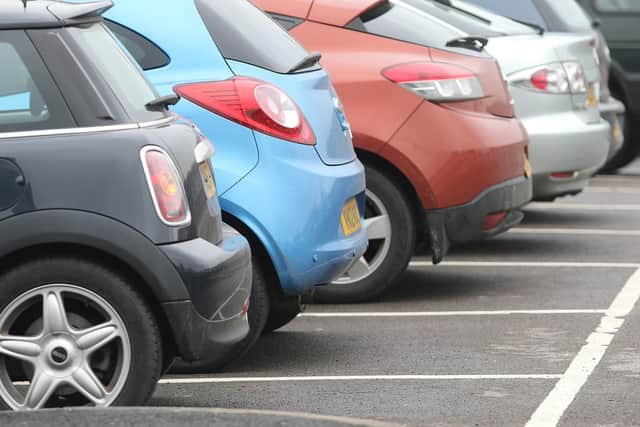Scotland's public transport must be ‘levelled up’ by making drivers fully pay their way – Alastair Dalton
It’s the car. An essential for some, such as those in rural areas, but a luxury denied to a significant minority in our cities – while often being profligately driven by those who own them, at the expense of those who don’t.
Cars cause pollution – including electric vehicles, from their tyres and brakes – contribute significantly to the climate emergency, create congestion, kill and maim people in crashes, and do nothing to benefit your health.
Advertisement
Hide AdAdvertisement
Hide AdBut it’s not a case of banishing them like cigarettes in confined public spaces, or alcohol behind the wheel, but constraining their virtually free rein in order to “level up”, to use a current political buzzword, other forms of transport.
The writing has been on the wall for some time, but it’s now writ large.
The Scottish government has set an ambitious target of cutting traffic by 20 per cent within eight years after it’s been increasing for decades.
It has signalled that charging drivers to use the roads could be needed – and last week the Commons’ transport committee separately concluded there was no viable alternative to replace dwindling carbon-fuel-based motoring tax income as electric vehicles take over.
Low emission zones are due to be introduced in more of Scotland’s city centres this year, ahead of all but vehicles with the cleanest engines being barred or penalised for entering.


Then there’s workplace parking levies, soon to be on the statute book, where councils can charge employers for their staff to park at work.
But for all the howls of opponents’ protest at the lack of a charge limit, I can’t see the likes of Edinburgh and Glasgow going for sky-high rates if their councillors want to remain elected.
In Nottingham, the only place in the UK with a levy, which was introduced ten years ago, spaces are £428 a year – or some £2 per working day.
Advertisement
Hide AdAdvertisement
Hide AdTo put that figure into perspective, levelling up here means considering the disparity between the cost of motoring and public transport, which the Scottish government is investigating in a “fair fares” review.
Figures from the RAC Foundation motoring group show that in December, motoring costs had increased by 26 per cent over the past decade while rail fares had gone up by 30 per cent, the cost of living by 33 per cent, and bus fares – by far Scotland’s biggest share of public transport – by 65 per cent.
So that means that even if those parking at work had to pay a levy in parts of Scotland, they would still be better off than commuters with no option but take the bus or train.
Public transport causes a fraction of the pollution, emissions, congestion and casualties as cars, and you’re also likely to get a health benefit as more of your journey will probably be on foot.
The vicious circle of driving being more convenient and cheaper needs to be replaced with a virtuous circle in which those who choose the car pay their way, with the extra income improving public transport – as it has in Nottingham.
A message from the Editor:
Thank you for reading this article. We're more reliant on your support than ever as the shift in consumer habits brought about by coronavirus impacts our advertisers.
If you haven't already, please consider supporting our trusted, fact-checked journalism by taking out a digital subscription.
Comments
Want to join the conversation? Please or to comment on this article.
